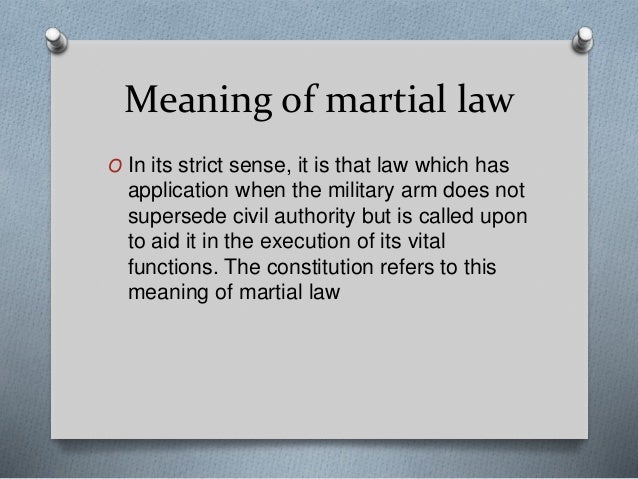


In conclusion, martial law is a drastic measure that should only be used as a last resort when all other options have been exhausted. The presence of armed soldiers and the suspension of civil liberties can create a sense of unease and insecurity among citizens. The exercise of government and control by military authorities over the civilian population of a designated territory. There was a tight curfew imposed, habeas corpus was suspended, and anyone deemed 'suspicious' was rounded up and imprisoned more than 2,000 people in the first 48 hours. military commandeered the entire government, suspending the legislature and all jury trials. Psychological impact: Martial law can have a significant psychological impact on the population, leading to fear, anxiety, and trauma. 141, September 25, 1862, Lincoln subjected protestors to martial law and the suspension of habeas corpus. According to History, the martial law enacted there was quite literal: the U.S. This can lead to shortages of food and basic necessities, causing further suffering for the population.ĥ. Economic impact: Martial law can have a negative impact on the economy, as businesses may be forced to close, and trade and commerce may be disrupted. This can cause significant disruptions to people's daily lives and limit their ability to express their grievances.Ĥ. Curfews and restrictions: Martial law may impose curfews and other restrictions on movement, such as restrictions on travel, gatherings, and protests. This can lead to a lack of transparency and accountability in the government's actions.ģ. Censorship: Martial law often involves censorship of the media and the internet to control the flow of information.
#Martial law meaning in history trial#
The military has the power to arrest and detain individuals without trial or due process, leading to human rights abuses.Ģ. by an army instead of by its usual leaders: Renegade forces captured the capital and declared / imposed martial law. Suspension of civil liberties: Under martial law, civil liberties such as freedom of speech, assembly, and movement are often suspended. Throughout history, martial law has been imposed at least 68 times in limited, usually local areas of the United States. It is usually declared during times of emergency, such as natural disasters, civil unrest, or terrorist attacks, to restore order and maintain public safety.ġ. Martial law refers to the temporary imposition of military rule in a particular area or country when civil authorities are unable to control the situation.


 0 kommentar(er)
0 kommentar(er)
